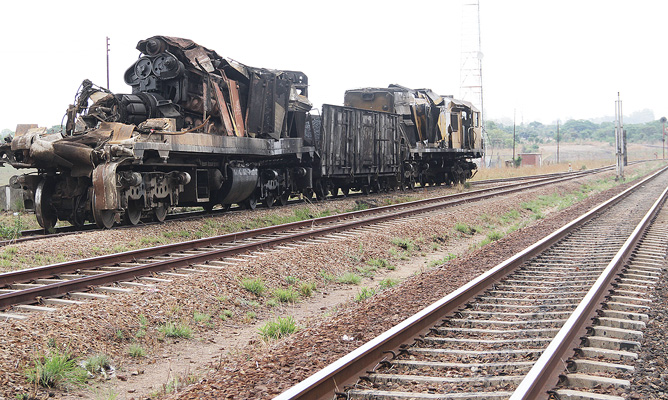
Wreckages of two National Railways of Zimbabwe goods trains which collided three weeks ago at Bromley Siding near Melfort along the Harare–Mutare Railway line are still stuck at the accident scene posing a threat to other trains including those carrying passengers.
by Staff Reporter

The trains, which were travelling in different directions, collided head-on, killing four crew members allegedly due to lack of communication.
When NewsDay visited the scene last week, the locomotives were parked along an inactive railway line.
Villagers in the area said they feared that more trains could collide if the wreckages were not removed.
“NRZ should clear the entire area and remove these locomotives stuck here, any slight mistake could cause more disaster,” said one Fero, a villager who farms just adjacent to the railway line.
NRZ spokesperson Fanuel Masikati said clearing of the site was still ongoing.
- Chamisa under fire over US$120K donation
- Mavhunga puts DeMbare into Chibuku quarterfinals
- Pension funds bet on Cabora Bassa oilfields
- Councils defy govt fire tender directive
Keep Reading
He said the railway company made temporary arrangements to allow access of the railway by other trains.
“We are still clearing the area just as we also do investigations to ascertain the cause of the accident,” Masikati said.
One of the trains, according to Masikati, was carrying granite blocks heading to Mutare, while the other was pulling 16 containers.
The debris of the trains was still scattered along the railway line, while the locomotives were stationed in one lane which seemed not usually used.
Due to dilapidated railway infrastructure, the country’s railway has become a death trap with at least 300 people having lost their lives in the past few years on the country’s railways through either suicide or accidents.











